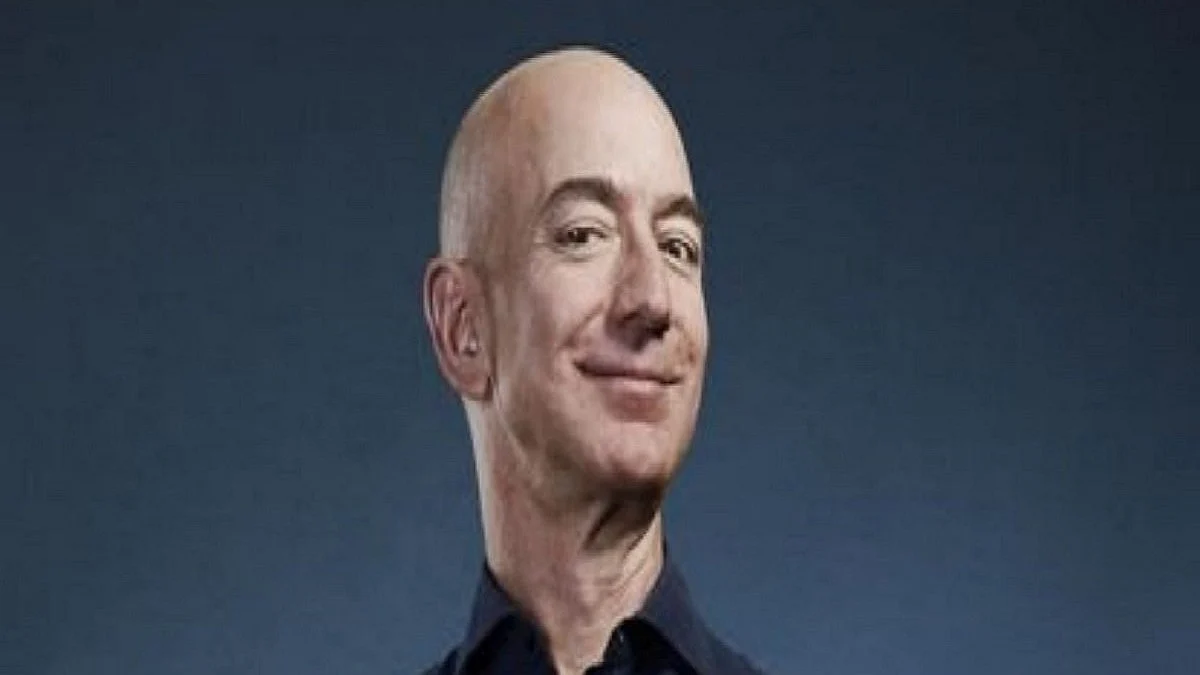World
Jeff Bezos reshapes Washington Post opinion section, sparks outcry
No responsibility to present a broad range of opinions, Bezos says in an email to employees

Jeff Bezos, the owner of The Washington Post, announced a major shift in the newspaper’s opinion section on Wednesday, a move that appears to align the publication more closely with right-wing ideologies. In an email to staffers, Bezos stated that the opinion section would now focus on "two pillars: personal liberties and free markets."
“We’ll cover other topics too of course, but viewpoints opposing those pillars will be left to be published by others,” Bezos wrote. He argued that, in an era where the internet provides a wide range of perspectives, it was no longer the newspaper’s responsibility to present a broad-based range of opinions.
The decision has led to the departure of opinions editor David Shipley. According to The New York Times, Shipley had engaged in discussions with Washington Post CEO Will Lewis since January regarding Bezos’s vision for the opinion section. The NYT reported that Shipley resisted Bezos’s directive, warning that it would limit the breadth of viewpoints in the section.
Shipley, who joined The Washington Post in 2022, had previously been involved in controversial editorial decisions. In 2024, Bezos blocked the Post’s editorial board from endorsing Kamala Harris in her presidential race against Donald Trump, a move that reportedly contributed to a loss of 250,000 subscribers.
Shipley also defended the Post’s refusal to publish a satirical cartoon by Pulitzer Prize-winning artist Ann Telnaes, which depicted Bezos and other billionaire media owners kneeling before Trump. Telnaes resigned in protest, joining a growing list of senior departures from the newspaper.
Published: undefined
In his email, Bezos wrote that he had offered Shipley the chance to lead the Post’s new direction but suggested that if his answer was not a "hell yes," then it had to be "no." Ultimately, Shipley chose to step away. Bezos shared his email with staff on X (formerly Twitter), reinforcing his stance that he is "for America, and proud to be so."
The shift has drawn harsh criticism, including from Marty Baron, the Post’s former executive editor. In an interview with online outlet Zeteo, Baron described Bezos’s intervention as “craven.” He accused Bezos of fearing Trump’s influence and claimed that even the Post’s previously "tepid" criticisms of Trump were now deemed too aggressive.
“What Bezos is doing today runs counter to what he said, and actually practiced, during my tenure at The Post,” Baron told The Guardian via email.
“Bezos argues for personal liberties. But his news organization now will forbid views other than his own in its opinion section. A few weeks ago, The Post described itself as a newspaper for ‘all of America.’ Now, its opinion pages will be open to only some of America, those who think exactly as he does.”
The backlash extended to current Post journalists. Jeff Stein, an economics reporter, posted on X and Bluesky that Bezos’s decision represented a "massive encroachment" into the opinion section and suggested that dissenting views would no longer be published. He warned that if Bezos attempted to interfere with the news section, he would resign.
Published: undefined
Senior video producer Dave Jorgenson echoed Stein’s concerns, reposting a video about “why some billionaires are going soft on Trump.” He stated on Bluesky that he, too, would leave if Bezos interfered with the news division.
Executive Editor Matt Murray attempted to calm internal tensions with a newsroom memo stating that the changes applied only to the opinion section and that “the independent and unbiased work of The Post’s newsroom remains unchanged.”
However, Cameron Barr, a former senior managing editor who had been working on contract with the paper, announced on LinkedIn that he was ending his association with the publication, calling the new direction an “unacceptable erosion” of editorial independence.
Bezos’s move at the Post comes amid broader shifts in the media landscape. MSNBC recently canceled "The ReidOut," a political show hosted by Joy Reid that had been critical of Trump, and laid off much of the team behind Rachel Maddow’s program after Maddow criticised the network for canceling non-white anchors’ shows.
Facebook’s parent company, Meta, and ABC News have both paid settlements to Trump in separate defamation cases. Meanwhile, the former president is suing CBS for $10 billion over alleged deceptive editing of a "60 Minutes" interview with Kamala Harris.
Simultaneously, the White House has been accused of restricting press freedom by asserting control over which reporters and media outlets will have close access to Trump. Traditionally, the White House Correspondents’ Association has overseen press access, but this move has raised concerns about government interference in journalism.
Despite the upheaval, The Washington Post continues to publish under the slogan: "Freedom dies in darkness." With Bezos’s new directive, critics argue that freedom of expression at one of America’s most influential newspapers is now at risk.
Published: undefined
Follow us on: Facebook, Twitter, Google News, Instagram
Join our official telegram channel (@nationalherald) and stay updated with the latest headlines
Published: undefined